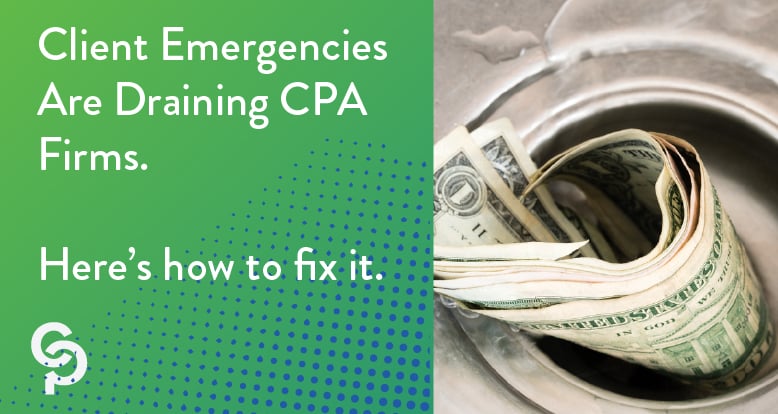Client Emergencies Are Draining CPA Firms. Here’s How to Fix It.

CPA firms are increasingly caught in a trap. Clients expect immediate responses to payroll issues regardless of time, scope, or workload. A missed paycheck or tax filing mistake isn’t just an inconvenience. It’s a crisis in the eyes of a client.
The result is a reactive support model that burns out staff, reduces strategic capacity, and undermines the firm’s long-term value. Here’s a closer look at the problem and some ideas for how to fix it.
The Trap of Always-On Support
Payroll, by its nature, is time-sensitive. Therefore clients, understandably, want fast answers when something goes wrong. But over time, the expectation of instant access to the CPA team becomes an expectation. The end result is that whenever a minor payroll discrepancy turns into a flurry of emails and calls, the firm’s team usually drops everything to put out fires.
The deeper issue, though, is structural. Most firms aren’t set up to triage and manage client requests effectively. And without clear expectations or systems, the loudest client normally gets the most attention.
To solve this problem, CPAs need to build systems that protect their time and energy while still delivering reliable, timely service. Here are several suggestions.
Set Response Time Expectations — and Stick to Them. Create clear engagement letters that define response times for different types of inquiries. For example:
- Payroll emergencies: Response within 2 business hours
- Routine questions: Response within 1 business day
- Strategic planning: By appointment only
Most clients don’t need instant answers. They just want to know when they’ll hear back. Communicating that up front eases pressure and gives your team breathing room.
Create Your Own Triage System. Establish a triage system to categorize incoming client requests. Use a shared inbox or ticketing system to route requests based on urgency and complexity. Assign team members to handle low-urgency items on a rotating basis while protecting time for deeper work. This ensures that true emergencies are prioritized, but not at the cost of everything else.
Offer Premium Support Tiers. Consider dividing your service into tiers. Clients who truly need real-time responsiveness can pay for it. For example, offer a premium payroll support package with guaranteed 1-hour response times, after-hours availability, or a dedicated contact. This not only controls demand but creates a new revenue stream. More importantly, it signals to all clients that urgency has a cost.
Train Clients to Use the Right Channels. Phone calls, texts, and unscheduled video meetings scatter your team’s attention. Limit support requests to designated platforms, ideally via email or a client portal. Explain to clients that using these channels ensures faster, more reliable service. Provide a simple intake form that helps categorize issues on submission. The goal is to steer clients away from disruptive habits and toward more structured communication.
Shifting from Chaos to Control
Client-driven urgency won’t disappear overnight. But CPA firms can change the rules of engagement. By setting expectations, building systems, and training clients to respect workflows, firms can reclaim control of their time.






